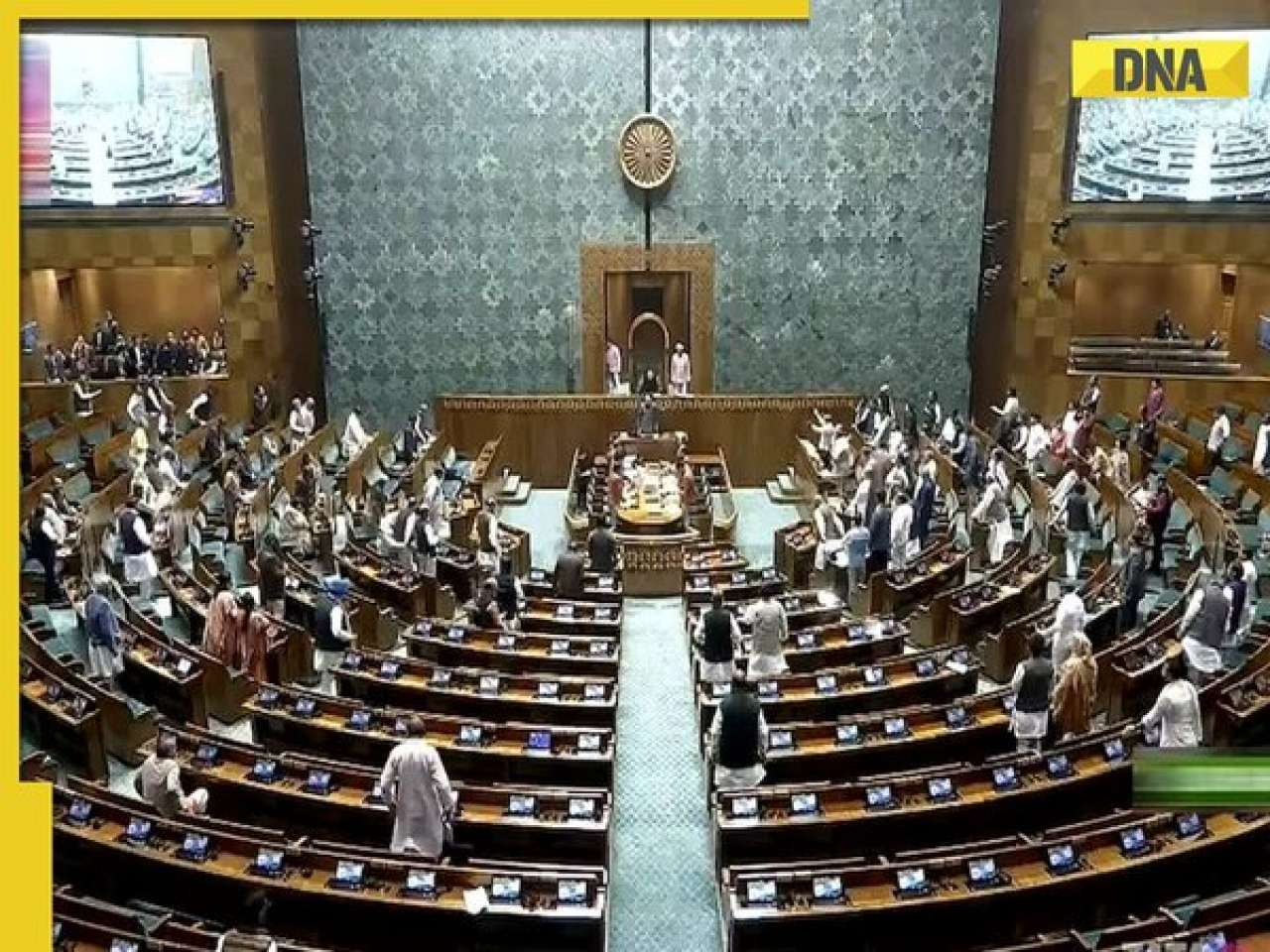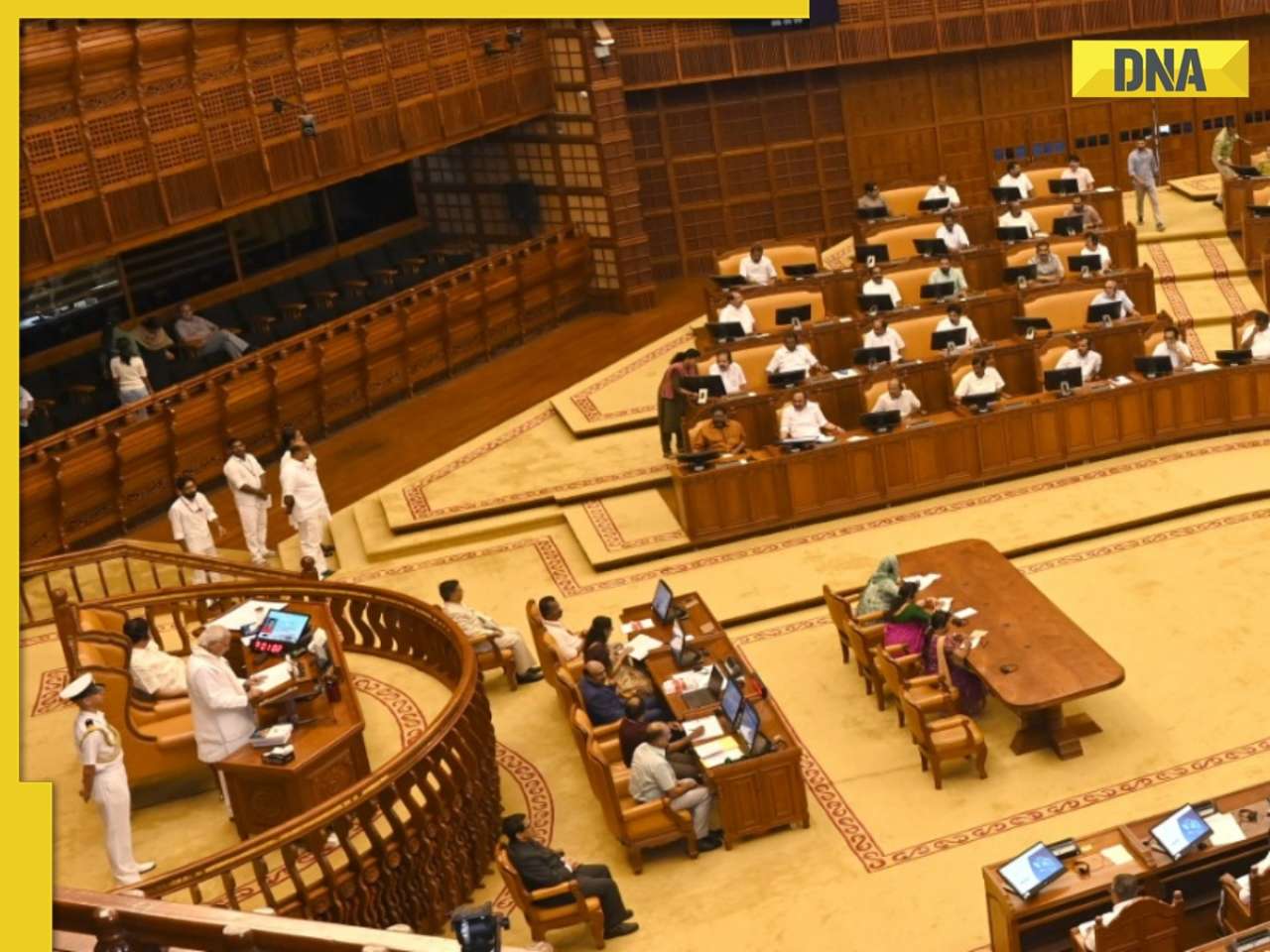The Supreme Court has said that it is not acceptable to use public places like Shaheen Bagh for protests, and protests cannot be held indefinitely at such locations.
The Supreme Court has said that it is not acceptable to use public places like Shaheen Bagh for protests, and protests cannot be held indefinitely at such locations. In many areas, including Delhi, Bengaluru, Lucknow, there are special places where people are allowed to stage protests. These sites are known as picket sites. This is the arrangement of India. Let's take a look at some other countries, where there are special rules regarding staging a protest.
This decision of the Supreme Court has come on a petition filed against the anti-CAA (Citizenship Amendment Act) protest. In December last year, protesters blocked a road at Shaheen Bagh in the capital. A bench headed by Justice SK Kaul said that public spaces could not be held indefinitely like Shaheen Bagh. The court also said that Delhi Police should have taken action to remove the protesters from Shaheen Bagh.
The Supreme Court's decision came in response to some petitions seeking directions on the right to protest, to which the Supreme Court court agreed that protesting is a constitutional right and should be respected. The Shaheen Bagh protests, which saw a group of people gather for a standing demonstration against the Citizenship Amendment Act for months, led to blocking a major route connecting Noida with Delhi. While "dissatisfaction and democracy go hand in hand," the Supreme Court said, the protests "cannot cause inconvenience to a large number of people and violate their rights."
What are the laws in other countries?
The US Constitution protects the right to peaceful protest, and restrictions can be placed on the time, place, and manner of protest (permits for which it is mandatory to be obtained in advance). In Britain, there is a provision to notify the police at least six days before the procession, and the government can end the protests to "prevent public disorder."
Portugal allows authorities to stop protests "when protesters seriously disrupt order, public peace, (or the free exercise of individual rights)," although no prior permission is required for peaceful protests. In Spain, it is not allowed to perform in a public place as directed by the Constitutional Court. Here, if someone disrupts traffic or damages public or private property, strict action is taken against it.
![submenu-img]() T20 World Cup Final: Rohit Sharma joins Kane Williamson in elite list, becomes first Indian captain to....
T20 World Cup Final: Rohit Sharma joins Kane Williamson in elite list, becomes first Indian captain to....![submenu-img]() Pankaj Tripathi fires back at Panchayat actor Pankaj Jha for claiming he romanticises his struggles: 'I am not...'
Pankaj Tripathi fires back at Panchayat actor Pankaj Jha for claiming he romanticises his struggles: 'I am not...'![submenu-img]() NEET PG 2024 revised dates to be announced within two days, says Education Minister Dharmendra Pradhan
NEET PG 2024 revised dates to be announced within two days, says Education Minister Dharmendra Pradhan![submenu-img]() Meet Indian genius who became world’s youngest surgeon at 7, started doing B.Sc at 12, master's at 17, joined IIT for...
Meet Indian genius who became world’s youngest surgeon at 7, started doing B.Sc at 12, master's at 17, joined IIT for...![submenu-img]() Jim Sarbh clarifies his 'mental therapy' comment wasn't targeted at Ranveer Singh: 'I find this almost absurd to...'
Jim Sarbh clarifies his 'mental therapy' comment wasn't targeted at Ranveer Singh: 'I find this almost absurd to...'![submenu-img]() NEET PG 2024 revised dates to be announced within two days, says Education Minister Dharmendra Pradhan
NEET PG 2024 revised dates to be announced within two days, says Education Minister Dharmendra Pradhan![submenu-img]() Meet Indian genius who became world’s youngest surgeon at 7, started doing B.Sc at 12, master's at 17, joined IIT for...
Meet Indian genius who became world’s youngest surgeon at 7, started doing B.Sc at 12, master's at 17, joined IIT for...![submenu-img]() Meet woman who cracked UPSC exam at 22, got AIR 28, became IAS officer in first attempt, now..
Meet woman who cracked UPSC exam at 22, got AIR 28, became IAS officer in first attempt, now..![submenu-img]() NTA announces new exam dates for UGC NET, CSIR NET; check details
NTA announces new exam dates for UGC NET, CSIR NET; check details![submenu-img]() UPSC topper IAS Tina Dabi is handling two crucial responsibilities, know details here
UPSC topper IAS Tina Dabi is handling two crucial responsibilities, know details here![submenu-img]() DNA Verified: Did Kangana Ranaut party with gangster Abu Salem? Actress reveals who's with her in viral photo
DNA Verified: Did Kangana Ranaut party with gangster Abu Salem? Actress reveals who's with her in viral photo![submenu-img]() DNA Verified: New Delhi Railway Station to be closed for 4 years? Know the truth here
DNA Verified: New Delhi Railway Station to be closed for 4 years? Know the truth here![submenu-img]() DNA Verified: Did RSS chief Mohan Bhagwat praise Congress during Lok Sabha Elections 2024? Know the truth here
DNA Verified: Did RSS chief Mohan Bhagwat praise Congress during Lok Sabha Elections 2024? Know the truth here![submenu-img]() DNA Verified: Is CAA an anti-Muslim law? Centre terms news report as 'misleading'
DNA Verified: Is CAA an anti-Muslim law? Centre terms news report as 'misleading'![submenu-img]() DNA Verified: Lok Sabha Elections 2024 to be held on April 19? Know truth behind viral message
DNA Verified: Lok Sabha Elections 2024 to be held on April 19? Know truth behind viral message![submenu-img]() Alia Bhatt mesmerises in gown, Ranbir Kapoor looks classy in tuxedo in latest romantic photos, fans say 'couple goals'
Alia Bhatt mesmerises in gown, Ranbir Kapoor looks classy in tuxedo in latest romantic photos, fans say 'couple goals'![submenu-img]() Newlyweds Sonakshi Sinha-Zaheer Iqbal pose candidly with paps; Anil Kapoor, Kajol, Huma Qureshi attend wedding reception
Newlyweds Sonakshi Sinha-Zaheer Iqbal pose candidly with paps; Anil Kapoor, Kajol, Huma Qureshi attend wedding reception![submenu-img]() Meet Lovekesh Kataria: Elvish Yadav's close friend, Bigg Boss OTT 3 contestant who lied to father, spent his fees on...
Meet Lovekesh Kataria: Elvish Yadav's close friend, Bigg Boss OTT 3 contestant who lied to father, spent his fees on...![submenu-img]() From Highway to Chandu Champion: 5 underrated gems from Sajid Nadiadwala
From Highway to Chandu Champion: 5 underrated gems from Sajid Nadiadwala![submenu-img]() In pics: Bigg Boss OTT 3 house with dragons, two-sided walls is all about fantasy coming alive
In pics: Bigg Boss OTT 3 house with dragons, two-sided walls is all about fantasy coming alive![submenu-img]() Lok Sabha Speaker's Election: What does the Constitution say?
Lok Sabha Speaker's Election: What does the Constitution say?![submenu-img]() Explained: Why is Kerala demanding to change its name to Keralam?
Explained: Why is Kerala demanding to change its name to Keralam?![submenu-img]() DNA Explainer: What is Kafala system that is prevalent in gulf countries? Why is it considered extremely brutal?
DNA Explainer: What is Kafala system that is prevalent in gulf countries? Why is it considered extremely brutal? ![submenu-img]() Lok Sabha Elections 2024: What are exit polls? When and how are they conducted?
Lok Sabha Elections 2024: What are exit polls? When and how are they conducted?![submenu-img]() DNA Explainer: Why was Iranian president Ebrahim Raisi seen as possible successor to Ayatollah Khamenei?
DNA Explainer: Why was Iranian president Ebrahim Raisi seen as possible successor to Ayatollah Khamenei?![submenu-img]() Pankaj Tripathi fires back at Panchayat actor Pankaj Jha for claiming he romanticises his struggles: 'I am not...'
Pankaj Tripathi fires back at Panchayat actor Pankaj Jha for claiming he romanticises his struggles: 'I am not...'![submenu-img]() Jim Sarbh clarifies his 'mental therapy' comment wasn't targeted at Ranveer Singh: 'I find this almost absurd to...'
Jim Sarbh clarifies his 'mental therapy' comment wasn't targeted at Ranveer Singh: 'I find this almost absurd to...'![submenu-img]() Rohit Saraf reacts to Ishq Vishk Rebound's dismal box office performance: 'What I can control is...'
Rohit Saraf reacts to Ishq Vishk Rebound's dismal box office performance: 'What I can control is...'![submenu-img]() Meet actress, who wanted to become criminal psychologist, broke off her engagement, is now among highest-paid stars
Meet actress, who wanted to become criminal psychologist, broke off her engagement, is now among highest-paid stars![submenu-img]() Rajinikanth hails Nag Ashwin for taking Indian cinema to a different level with Kalki 2898 AD: 'Eagerly waiting for...'
Rajinikanth hails Nag Ashwin for taking Indian cinema to a different level with Kalki 2898 AD: 'Eagerly waiting for...'![submenu-img]() World's oldest wine, buried 2000 years ago, was discovered in…
World's oldest wine, buried 2000 years ago, was discovered in…![submenu-img]() Meet world's most wanted woman, carried a reward of Rs 417241250 on her head, her crime is...
Meet world's most wanted woman, carried a reward of Rs 417241250 on her head, her crime is...![submenu-img]() Meet actress who was once compared to Marilyn Monroe, was stabbed 16 times when 8th month pregnant, hanged alive by..
Meet actress who was once compared to Marilyn Monroe, was stabbed 16 times when 8th month pregnant, hanged alive by..![submenu-img]() Most expensive bottled water, sold in Japan, is adorned with Swarovski crystals, cost per litre is Rs..
Most expensive bottled water, sold in Japan, is adorned with Swarovski crystals, cost per litre is Rs..![submenu-img]() Before Anant Ambani-Radhika Merchant's grand wedding, Mukesh Ambani and Nita Ambani plan to...
Before Anant Ambani-Radhika Merchant's grand wedding, Mukesh Ambani and Nita Ambani plan to...





































)


















)
)
)
)
)
)